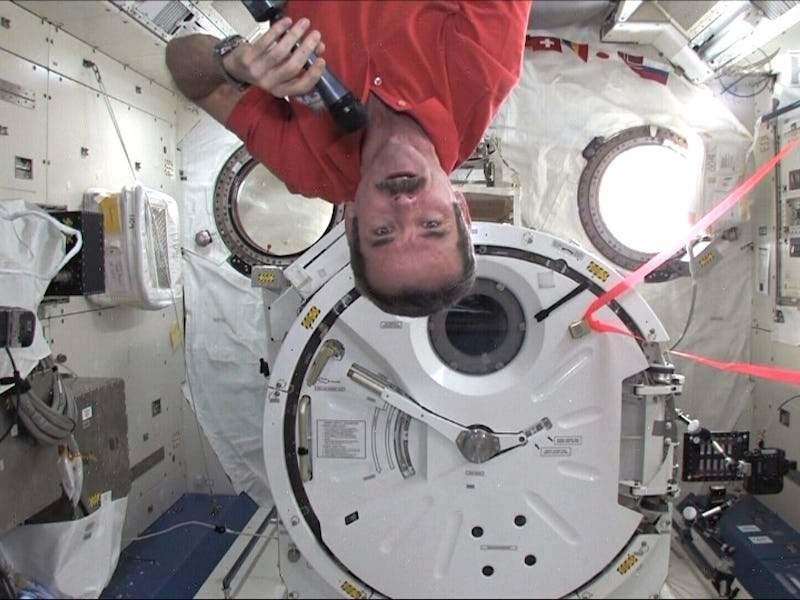Extended Space Missions Could Create 'Unbalanced' Astronauts

No, it’s not the sort of unbalanced from deep-space sci-fi movies. We’re talking about the balance one needs to stand. Because while we all know long-term space travel degrades the body — causing your bones to stiffen and your muscles to atrophy — a new “bed rest study” suggests the possibility that extended space missions can affect the inner ear, and result in a decreased ability for people to hold their balance.
Bed rest studies are exactly what they sound like. Remember the news about the study that paid $18,000 to lie in bed for 70 days, about which you likely tweeted jokes for two, maybe three days before moving on to the next thing? This is like that.
For the new study, which will appear in the November 1 edition of the research journal NeuroImage, principal investigator Rachel Seidler of the University of Michigan told Seeker that her team found increasing connectivity in the sensory motor networks in participants’ brains. “The brain regions that are controlling movement and processing sensory information for balance and locomotion, during the course of bed rest, start to communicate more than they normally would,” Seidler said then.
We can’t be sure until we actually observe effects in outer space, but it’s possible that the effects of microgravity will be even greater than what was observed in the bed rest study.
While the body may never recover entirely from the ordeal that is space, there’s some evidence that the inner-ear will be able to bounce back upon return to Earth (though we still don’t quite understand how). Of course, where that leaves future Mars colonists remains to be seen. With physical deterioration, the best means of counteracting these effects seems to be to try to reproduce regular, gravity-informed conditions. As far as the brain goes, we’re still kind of figuring it out.
“We think this is actually, potentially, a reflection of how the brain and the body are affecting to this bed rest environment,” Seidler told Seeker. “If you imagine reduced sensory input, one way the brain responds to turn up the volume, if you will: That’s what we think is happening.”
So, by all means, go to Mars like Elon Musk wants you to. But be ready: you just might fall over once you get there.